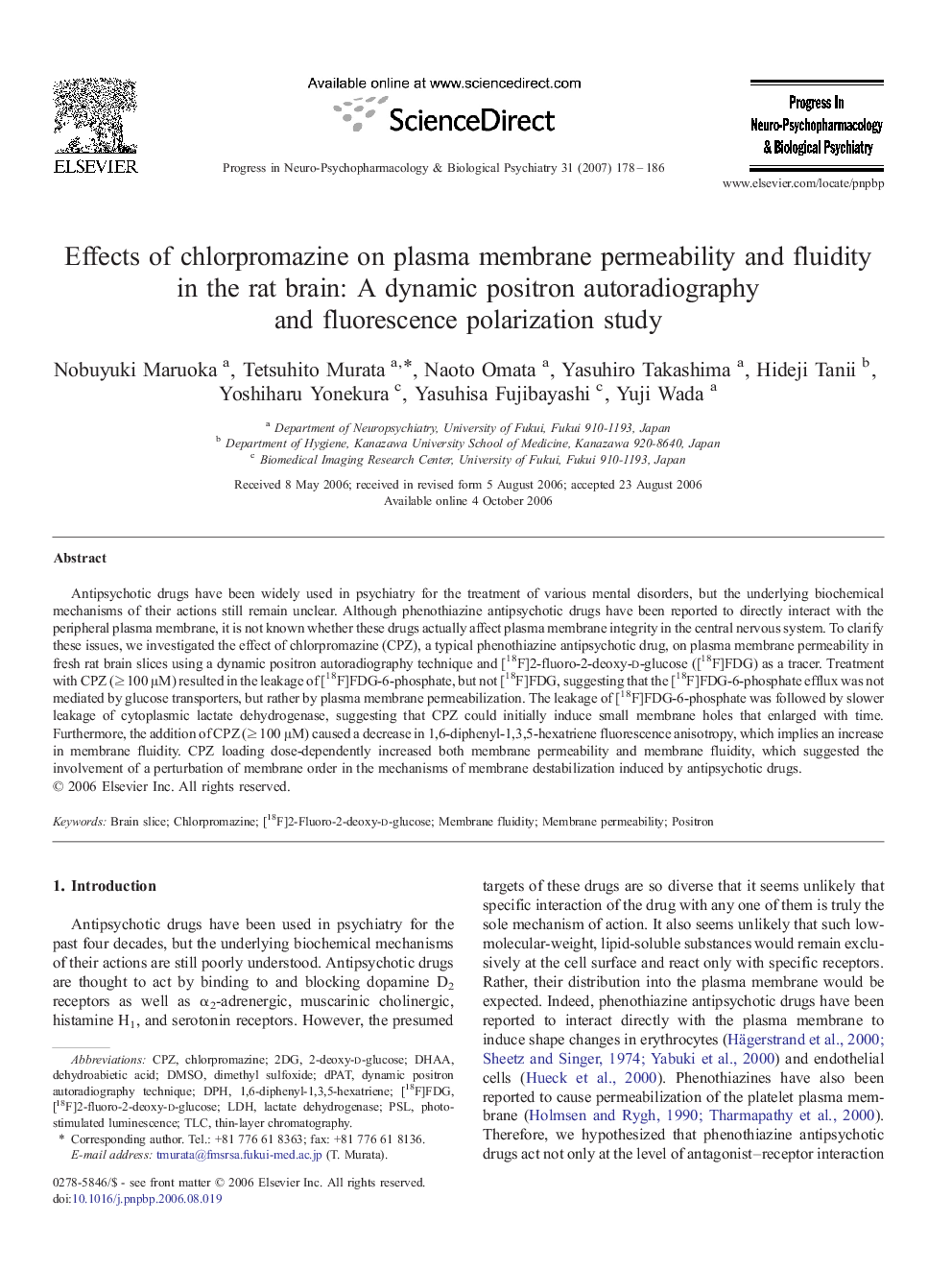| Article ID | Journal | Published Year | Pages | File Type |
|---|---|---|---|---|
| 2566028 | Progress in Neuro-Psychopharmacology and Biological Psychiatry | 2007 | 9 Pages |
Antipsychotic drugs have been widely used in psychiatry for the treatment of various mental disorders, but the underlying biochemical mechanisms of their actions still remain unclear. Although phenothiazine antipsychotic drugs have been reported to directly interact with the peripheral plasma membrane, it is not known whether these drugs actually affect plasma membrane integrity in the central nervous system. To clarify these issues, we investigated the effect of chlorpromazine (CPZ), a typical phenothiazine antipsychotic drug, on plasma membrane permeability in fresh rat brain slices using a dynamic positron autoradiography technique and [18F]2-fluoro-2-deoxy-d-glucose ([18F]FDG) as a tracer. Treatment with CPZ (≥ 100 μM) resulted in the leakage of [18F]FDG-6-phosphate, but not [18F]FDG, suggesting that the [18F]FDG-6-phosphate efflux was not mediated by glucose transporters, but rather by plasma membrane permeabilization. The leakage of [18F]FDG-6-phosphate was followed by slower leakage of cytoplasmic lactate dehydrogenase, suggesting that CPZ could initially induce small membrane holes that enlarged with time. Furthermore, the addition of CPZ (≥ 100 μM) caused a decrease in 1,6-diphenyl-1,3,5-hexatriene fluorescence anisotropy, which implies an increase in membrane fluidity. CPZ loading dose-dependently increased both membrane permeability and membrane fluidity, which suggested the involvement of a perturbation of membrane order in the mechanisms of membrane destabilization induced by antipsychotic drugs.
